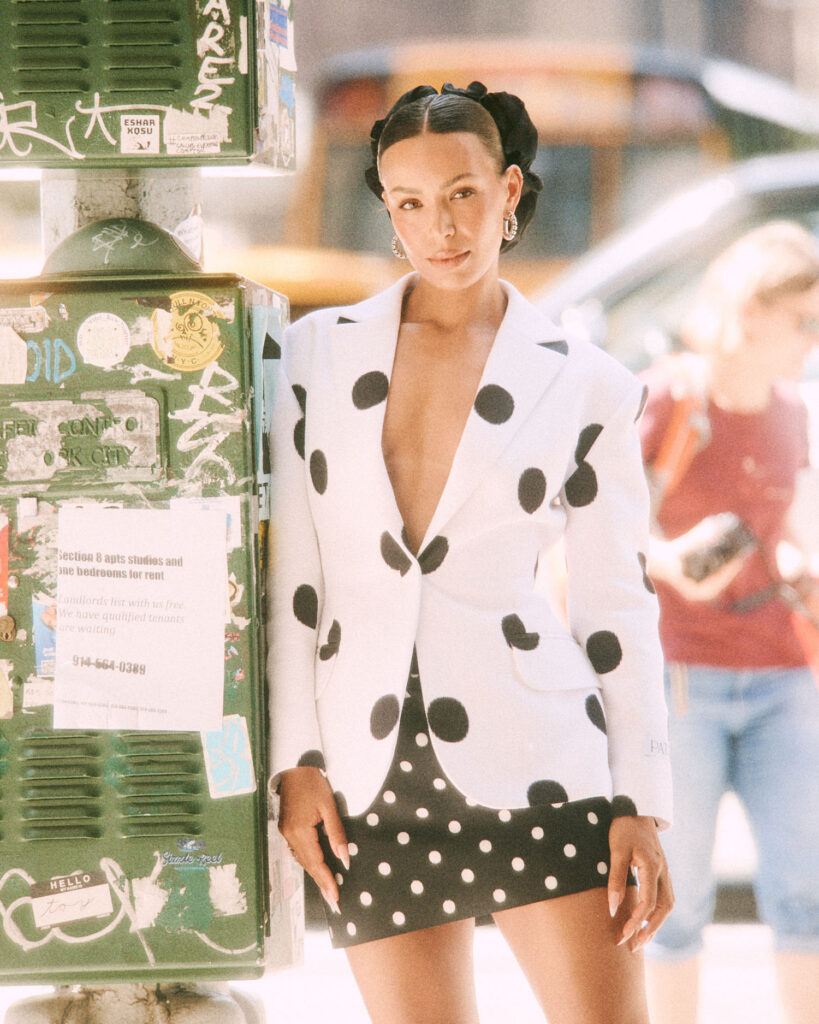
Ilfenesh Hadera and Spike Lee have come a long way together. Her starring role in Highest 2 Lowest, Spike Lee’s modern day A24 adaptation of an Akira Kurosawa class thriller, marks her fifth collaboration with the Brooklyn auteur, but you’d be forgiven if you didn’t catch her first role with him: a single line in an HBO pilot about boxing that never saw the light of day. Still, she made an impression—over the next decade she’s been a key player in his team of actors (when she’s not scoring plum roles in everything from prestige power struggles like Billions and the Godfather of Harlem to the bouncy beach comedy Baywatch).
With Highest 2 Lowest coming to theaters this week, Hadera caught up with friend, former Baywatch co-star, and current lead of the AMC TV series Mayfair Witches, Alexandra Daddario. The two dish on the summer camp-like thrill of filming on location, how their real-life relationships survive industry madness, and keeping track of onscreen kisses.
Alexandra Daddario: Seeing you up there with Denzel Washington, I was giddy with joy. I know you work with incredible actors all the time, but what’s it like to kiss Denzel Washington? Does that make you nervous?
Ilfenesh Hadera: Everybody wants to know what it’s like working with Denzel. “Were you nervous? Is he intimidating?” And the answer is “Yeah, obviously.” He is Denzel. There aren’t that many movie stars these days, and he just has that. He just is that guy. He’s lovely and professional and so talented, but also you never know what you’re gonna get out of him.
The movie rides on his performance. So he’s super friendly and personable, but also, read the room. You’re not gonna walk onto set and start talking about the weather with Denzel. You wait for him to set the tone of the day. After working with Forest [Whitaker, on Godfather of Harlem], who’s so talented and such an incredible human, the nerves weren’t what they would’ve been. He was a nice foray into working with some of the greatest of all time.
Daddario: I’m grown up now, so I don’t really do it anymore, but for a long time, I had a running list of all the famous men I kissed on screen. I was like, Oh my God, this is so awesome that I can say that I’ve made out with all of them.
Hadera: Your list is definitely a lot longer than mine. But I also got to kiss Dwayne [Johnson].
Daddario: You did get to kiss Dwayne!
Hadera: I’ll never forget that day on set when you were asking about the kiss. I think you and Jon [Bass] were probably asking. Everybody wanted the details.
Daddario: In an appropriate way! On Baywatch, the stories of what went on and the fun that we had was so much more interesting than the movie itself. No offense to everyone involved.
Hadera: Was that a singular experience for you? It was so otherworldly to me. It was my first big studio film, and I’d never shot on location before.
Daddario: The whole experience was totally different in the sense that there was so much attention. I hadn’t really experienced that. It was Baywatch! I wouldn’t say that making the movie was always the easiest thing, but you and Jon and everyone we worked with made it so much fun. I have a lot of great memories from that time. There was never a dull day. And Jon Bass and I having periodic panic attacks, and you kept us grounded.
Hadera: Someone had to!
Daddario: I was just so excited to see you and see everything you’ve been doing because you’re this incredible actress and woman. So let’s talk about Spike Lee.
Hadera: Spikey.
Daddario: You call him Spikey?
Hadera: No, I call him Spike, but there’s so many different nicknames for Spike. I think someone in his family, maybe his mom or his grandmother, used to call him Spikey Poo. So if I’m teasing him, I’ll very occasionally call him Spikey Poo. But that’s really once in a blue moon.
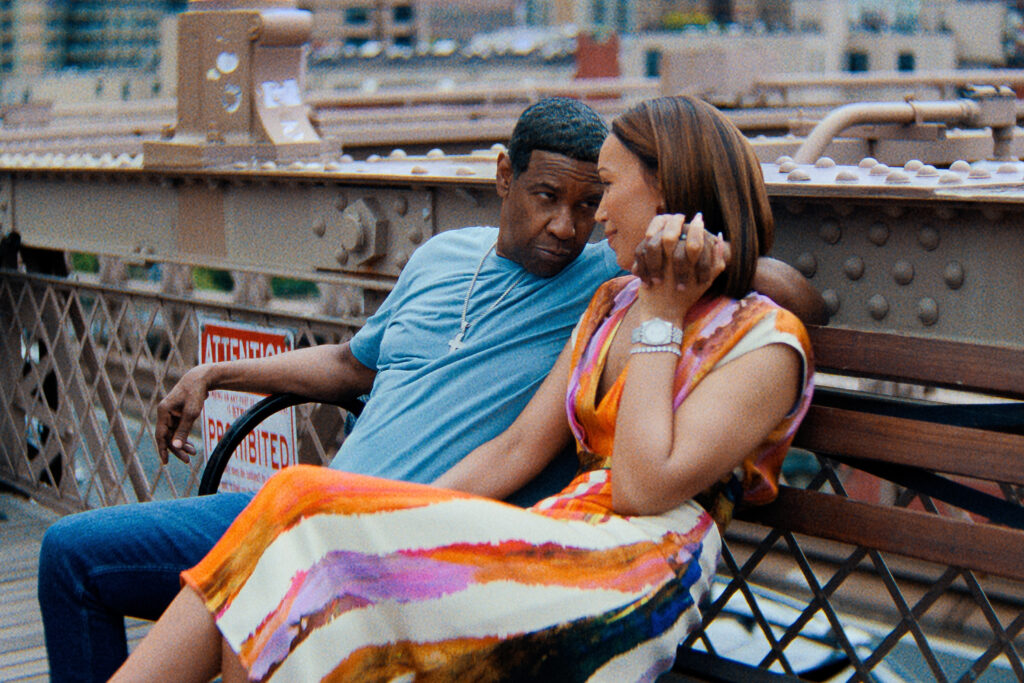
Daddario: We’re both from New York. He’s at every basket for every Knicks game. I don’t go to a ton of games, but I see him. He’s such an iconic figure. You’ve worked with him a few times. I imagine he’s an easygoing, fun director for an actress.
Hadera: He is. I laugh because, in all of the promos and in all of the interviews that Spike and Denzel do together, it’s like “It’s Denzel and Lee’s fifth collaboration.” But when I count, I’m like, “Spike and I have worked together five times now too.” To a much different degree. The first time I worked with Spike, I had one line in an HBO pilot. I quit my restaurant job because I was like, “This is it! This is the beginning.” Then the pilot didn’t get picked up, which to me seemed insane because Entourage was hot, and it was Spike. Why wouldn’t they green light it?
Daddario: The longer you’re in the business, the more you’re like, Jesus Christ, this is hard.
Hadera: The more and more we work together, the larger the roles have gotten and the more demanding they’ve gotten, the more I felt like I have the right as an actor to chime in and have thoughts and opinions on what a character would and wouldn’t do. He’s the ultimate collaborator. He likes to rehearse, which is a blessing, and gives time to rehearse. We’ll go through the scenes and the words and say, “Does this ring true to you?” And if you say, “Hey, I think that doesn’t resonate so much with me and what the character would be saying or feeling in this moment,” he’s happy to make adjustments.
The only thing that he’s really particular about is that he will not switch plans on shots. If he envisions something one way, even if the blocking doesn’t necessarily feel natural physically to you, you’re gonna do it his way. I think that’s fair.
Daddario: Every director is different. Sometimes there are directors who will be like, “Do whatever feels natural, and then we’ll figure it out,” which doesn’t always work.
Hadera: On Godfather of Harlem, we do 10 episodes seasons, and we’ll have a director come in, do two, and then we’ll move on to another. There is an element of, this is the show that I worked on for four seasons. This is a character that I’ve known for 40 episodes. And also, you’re not Spike. So I’m less willing to just do what they say.
Daddario: I think that’s part of maturing as an actress too. That’s really different from working on a movie. You shot [Highest 2 Lowest] in my neighborhood. When the movie came on, the beautiful first few shots of that film, I was like, Oh my God. I walked by there every single day, and that’s my Starbucks.
Hadera: It’s nice to work at home, isn’t it? You come in feeling like, This is my turf. This is my territory. I belong here. It gives you a sense of confidence maybe that you might not otherwise have or wouldn’t come so easily.
Daddario: It changes the dynamic too because you get to sleep in your own bed, and there isn’t this sense like we had on Baywatch of this bubble where it’s just about us and we’re the only people because our friends and family aren’t around.
Hadera: Alex [Soroken] and I have two cats and a dog, so even if I’m working here, if I come home after a long day, he’s had a long day too, right? Is my day any more important? No. So I’m still walking the dog. That lack of responsibility while you’re away is nice. But it’s also so lovely if you’re at home and have a day off, and you’re able to just enjoy being home and not homesick. I had some super homesick days during Baywatch.
Daddario: Being on location can be really tough. Your partner can feel disconnected from you.
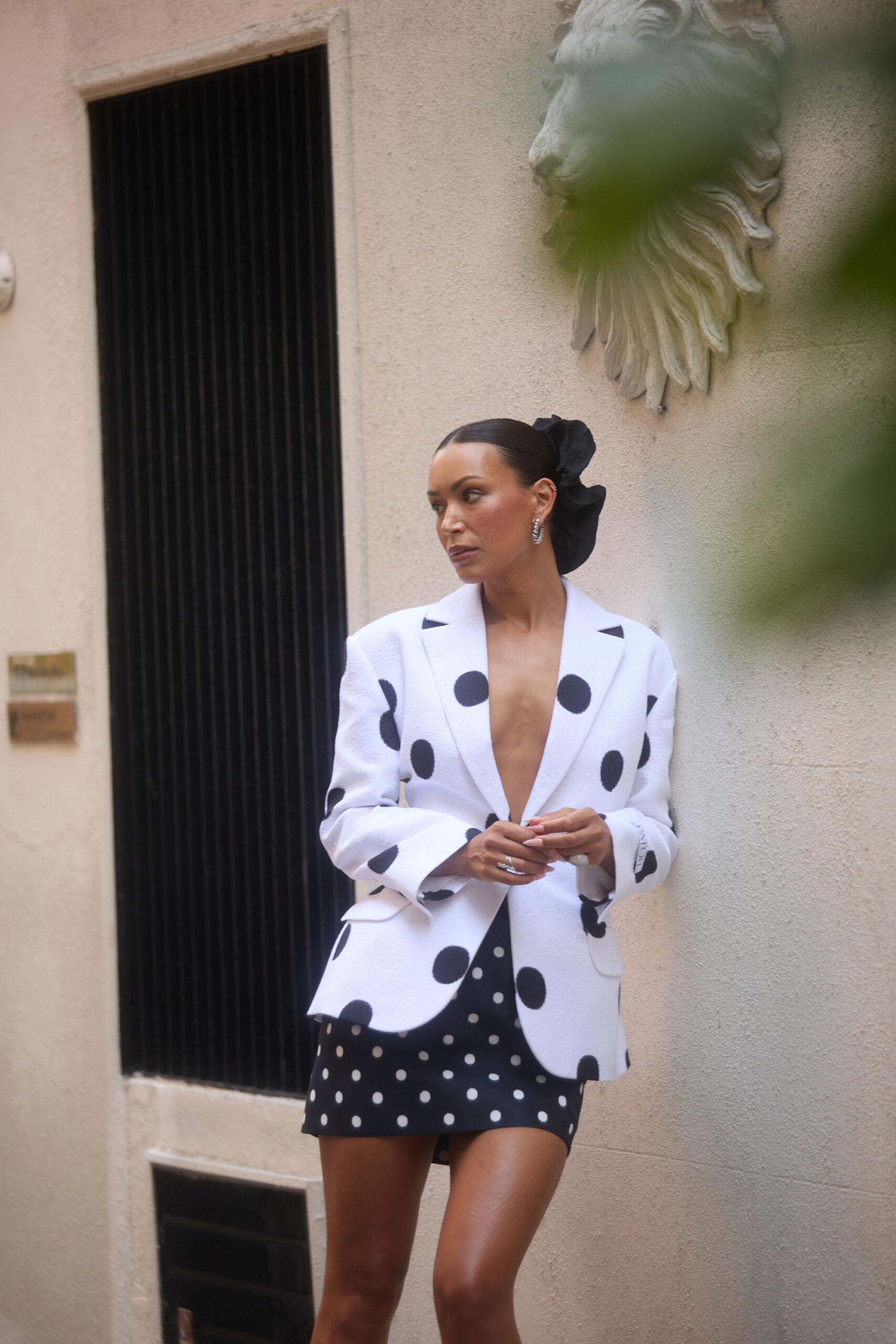
Hadera: Alex and I definitely had some moments during Baywatch. That was a tricky period for us too. They can feel like they’re left out of this secret club. And [they’re] not. This is work, and when this is over, I’m coming home.
Daddario: And I’m gonna help you with the dogs, and we’re gonna figure out dinner and, if I’m coming home late, then you’ll have dinner waiting for me in the fridge. It’s collaborative.
Hadera: If you don’t, then there’s a problem.
Daddario: Then we’ll fight.
Hadera: That’s one of the hardest parts about being away on set. If there’s an issue, there’s distance between you, which puts distance between you, right? If you’re at home and you have a problem while you’re working, you just wake up and you see them and you figure it out.
Daddario: I actually think artistically it can be easier when you’re at home because when you’re away, it can be quite stressful to not have that comfort, and it can be distracting in a weird way.
Hadera: Where does Mayfair Witches shoot?
Daddario: We were shooting in New Orleans. Andrew [Form] and I got married while we were filming. We threw together this sort of haphazard wedding, and it was fun! I love New Orleans. I’ve worked down there a lot. We were supposed to shoot Baywatch in New Orleans, but it got moved to Savannah.
Hadera: That would’ve been a mess. Baywatch in New Orleans?
Daddario: We would’ve been so drunk the whole time.
Hadera: People would’ve gone missing. People were going missing in Savannah.
Daddario: It wouldn’t have gotten made.
Hadera: That movie wouldn’t have gotten made because somebody might have died.
Daddario: We were all single. I still feel young now, but now I realize how young I was back then. We were a little wild, considering we were working out all the time and being super healthy. We shot [Mayfair Witches] in Ireland last season, and now I’m going up to Vancouver. Consistency is hard to find. But I kind of love jumping around. I’m so used to it. I’m like, Is this healthy that I love jumping around?
Hadera: Because you have a home base. You have real ties to a place and people. You’ve got a husband and a home and a dog. It’s not like you’re off shooting in these far-flung places, and then you come back and you’re Single Alex, trying to figure everything out.
Daddario: I started to hate being Single Alex coming home. That’s why I always had a roommate. That’s how I’ve managed to keep it together in this business. You’ve had a ton of consistency.
Hadera: It helps it, so much of my work has been home in New York. I feel really lucky. I’m worried that my luck will run out soon and I’ll be sent off.
Daddario: I hope your luck runs out and you end up in Italy.
Hadera: Yes, me too.
Daddario: I hope your luck runs out and you end up—
Hadera: In London! That would be great.
Daddario: Knowing you, I feel like you’d attract that kind of energy.
Hadera: Bring it on.
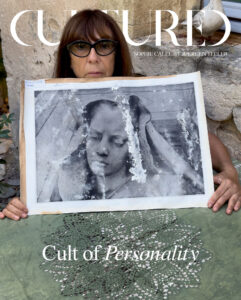
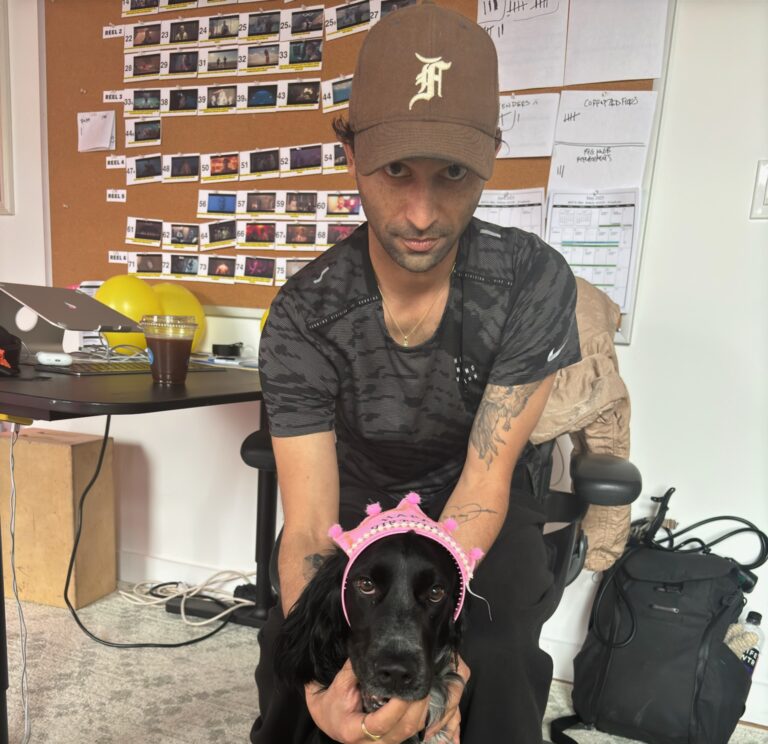
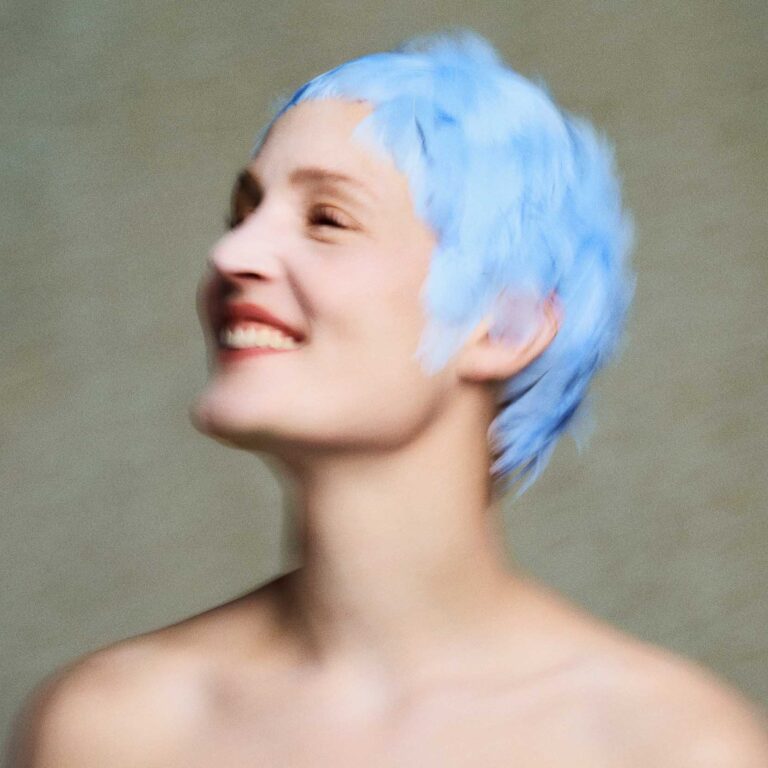
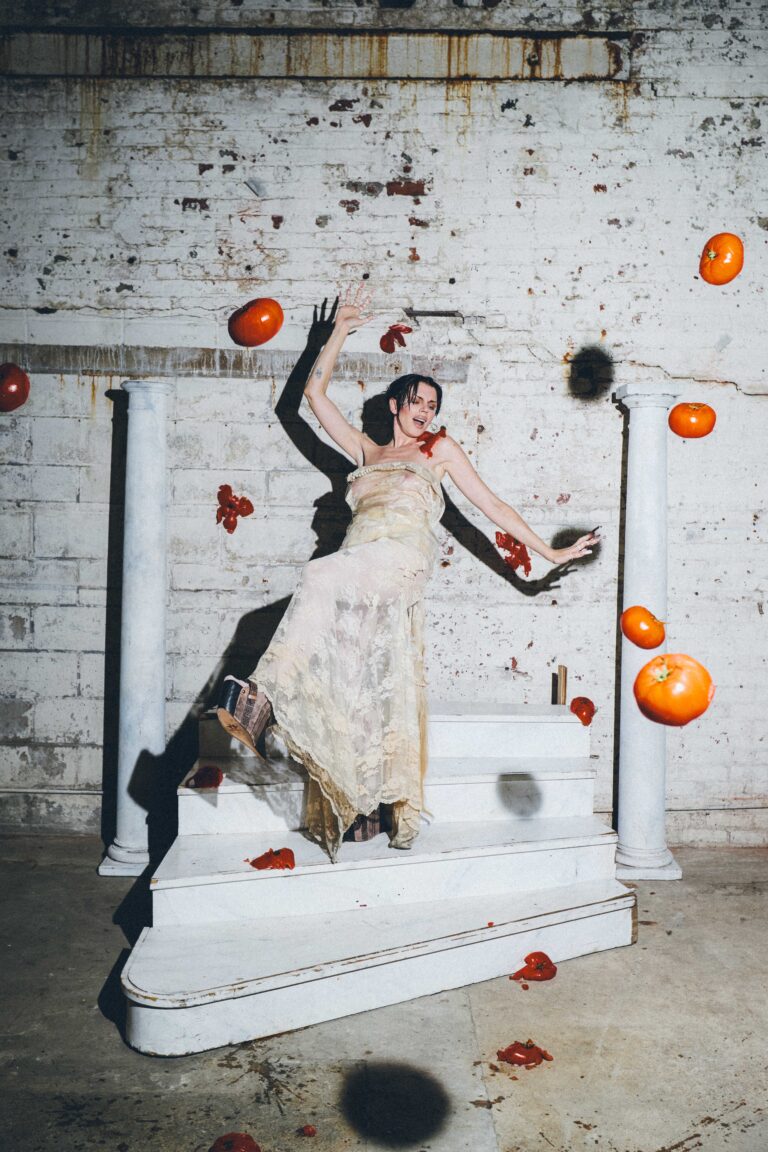
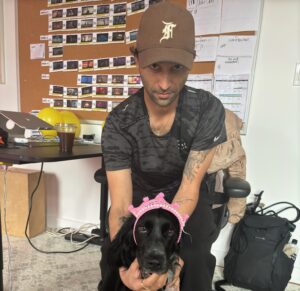
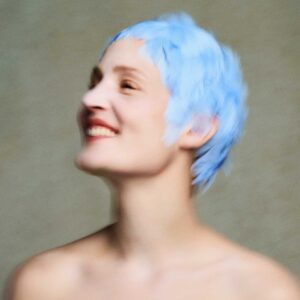
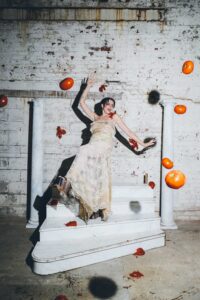

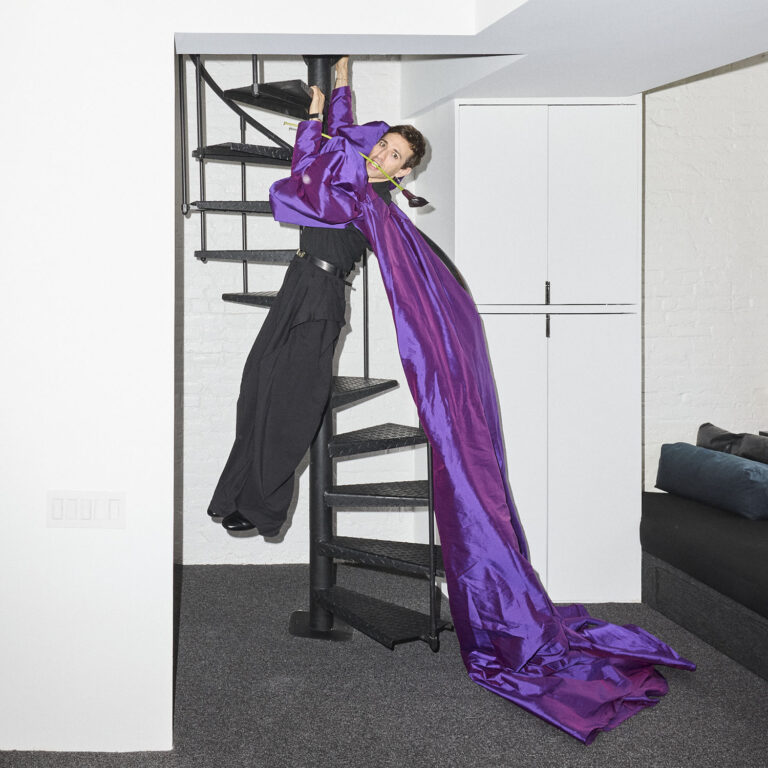

 in your life?
in your life?

